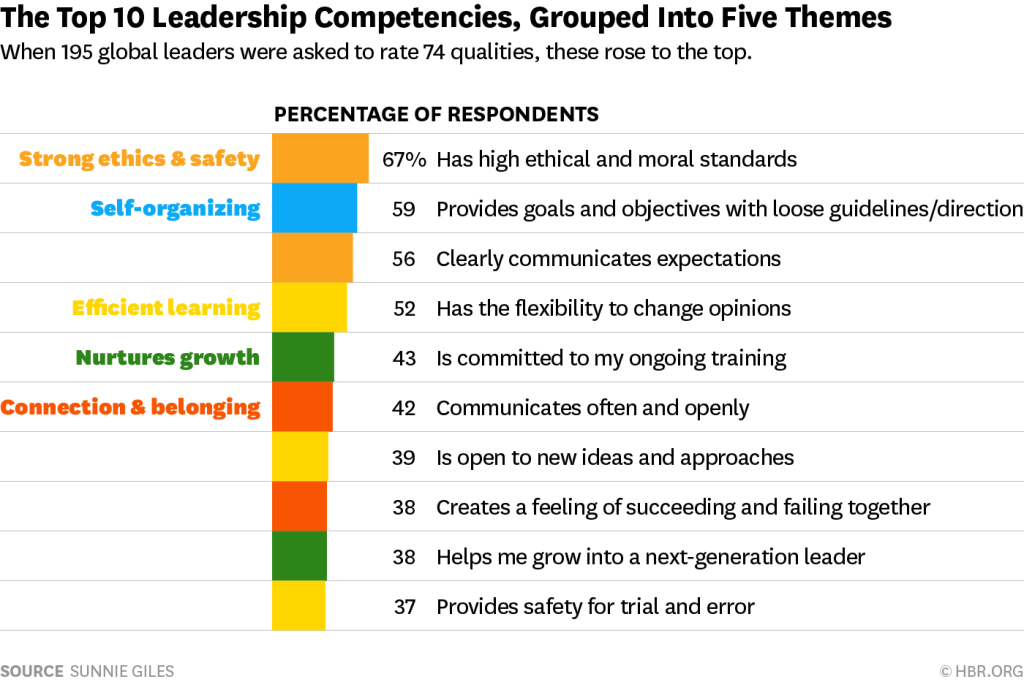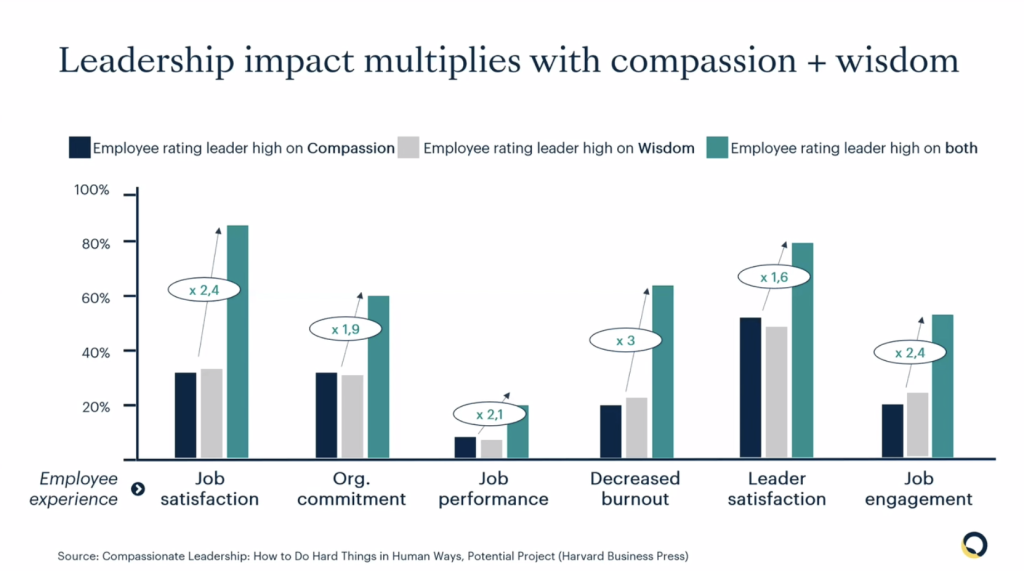By Joe Judge and Mike Merrill, co-authors — “Leadership is Overcoming the Natural: 52 Maxims to Move Beyond Instinct”
A team’s performance suffers significantly under a leader who fails to inspire. Research by behavioral statistician Joseph Folkman indicates that leaders who do not inspire their followers have a total leadership effectiveness rate of 9%, an engagement rate of 23%, and a team with 47% of members considering leaving.

If you want to inspire people, you must first get them to listen, and people will only listen when they are emotionally and intellectually invested in your words and ideas. After all, when your team truly listens to you, they do more than simply comprehend your words. They feel the weight of your statements.
In short, to be an inspiring leader, you need to become someone people view as worthy of attention. If your team respects you as a leader, they will listen to what you have to say. Your words will unite and focus the team’s work, but to make this happen, you must first demonstrate values of competence, compassion, and consistency.
Leadership development acknowledges that teams listen to competent leaders
Demonstrating competency as a leader is essential because it allows people to feel confident in your ability to help them, which builds trust and increases engagement with whatever you say or do next. When your team sees you as someone who can get the job done and take care of them in the process, they will walk through walls to follow you.
Competence in your role does not mean that you can handle everything that comes your way. Developing competence as a leader means humbling yourself when you’re incorrect, recognizing your limitations, and focusing on the details that inspire confidence in your team.

When someone signs onto your team, they place a lot of faith in you as a leader because they have decided that you are a person who can and will empower them to reach their personal and professional goals. Some have uprooted their families to work under you, and others have left familiar jobs and hometowns behind for the opportunity you offer them. Whatever their case might be, they trust you to help them further their career goals, secure a solid income, and provide for their families.
Always remember that the members of your team took a risk when they joined you, and often a bigger risk than you took on them. As a leader, your job is to make their risk pay off and show that their faith in your abilities is well placed. They have to know that you not only have goals, but also that they have a role in achieving those goals.
The fine art of proving your competence as a leader is a topic of vast discussion and domain-specific. However, there are three non-negotiables for competent leaders in any area.
First, acknowledge your mistakes. It’s not easy to admit that you made a mistake, but it’s one of the most powerful ways to earn respect from your team and help them learn from the experience. Admitting that you were wrong can be downright humbling, but this is precisely why it helps you grow as a leader. When you take responsibility for what went wrong and make amends with those affected, your team will see how much integrity and character you have.
Second, you demonstrate competence when you recognize your lack of expertise in a particular area and seek assistance. The best leaders know they don’t have all the answers and readily admit their limitations, so if you find yourself in a situation with gaps in your knowledge or skills, demonstrate competence by asking for help and seeking out someone with more experience to solicit their advice.
Finally, to prove yourself as a competent leader, pay attention to the details and don’t let a focus on the big picture distract you from day-to-day operations on the front lines. The nitty-gritty details matter because the success of any project, organization, or team rests on them.
Operational details also impact the day-to-day experience of the individuals on your team. Competent leaders can keep their eye on the details without becoming bogged down.
Teams listen to leaders who develop a leadership mindset involving compassion
Your team wants to see real compassion, which means they need to know that the person making decisions understands how they feel, cares about their feelings, and relates emotionally. A leader’s compassion makes a team feel seen and heard which, in turn, makes the team willing to listen.
Compassion enables you to connect with your team on a deeper level. The bottom line is that people listen when you take the time to understand their dreams, capitalize on their strengths, and show empathy when they make mistakes.
It is somewhat natural to be self-centered. When we’re young, it’s easy to feel like the world revolves around us. Unfortunately, many adults remain too self-absorbed to consistently put other’s needs before their own.
For those in a leadership role, this is not an option. As a leader, you understand that people depend on you, so you must view your role not as a position of power but as an act of service.
Everyone on your team has goals, hopes, and dreams. As a leader, you need to know what these are by learning what makes each person on your team tick. Find out what motivates and stresses them out, and how to play to their strengths while helping them minimize their weaknesses.
Despite depending on a team for success, many leaders make the mistake of not paying enough attention to the people following them. It takes time to know your team, but above all else, it demands sincere enthusiasm. Find ways to let your team shine as you get to know their talents, and always remember that your success as a leader never depends solely on your own merit.

Compassion also requires you to give your team room to learn and grow when they make mistakes. Keep in mind that you likely bear some part of the responsibility for each mistake your team makes.
As a leader, you conveyed expectations, responded to or failed to respond to previous events, and sanctioned the methods, resources, and systems they were working with, whether expressly or implicitly. No leader is perfectly compassionate all of the time, but the best leaders learn to become effective in expressing compassion, even when it’s most challenging.
Some people on your team are confrontational, others are less competent, and still others are simply annoying. Nevertheless, remembering that everyone deserves compassion is your responsibility as a professional, so make a concerted effort to appear caring even if you are sitting across from someone unpleasant to deal with.
Try picturing how you would respond if they were a close relative or friend. You aren’t attempting to trick them, you are putting yourself in a frame of mind to provide your utmost professional care.
Teams listen when your leadership principles and strategies are consistent
If you want people to listen to you, you must be consistent in every aspect of your leadership. By demonstrating consistency in your decisions, energy, conduct, and demeanor, you make your team feel safe, even during times of uncertainty and transition.
Your team watches everything everything you do, down to the smallest details of your facial expressions and body language. To inspire confidence, keep your emotions in check and be constant in your communications about your faith in the team, the plan, and its success.
Instability emerges when leaders are difficult to predict, which can cause people to create and spread their own narratives to explain a leader’s erratic behavior. In contrast, when a leader demonstrates consistency, it builds trust and enables teams to do their best work.
Warn your team if something outside of your control will cause you to change your normal approach. Whenever you go through a transition, you must convey it to your team, and you will likely need to explain the transition multiple times until it becomes the norm.
If you want to be heard as a leader, first make yourself someone your team wants to hear. By developing competency, compassion, and consistency at the core of your leadership approach, you will build trust with your team and inspire them to action.
